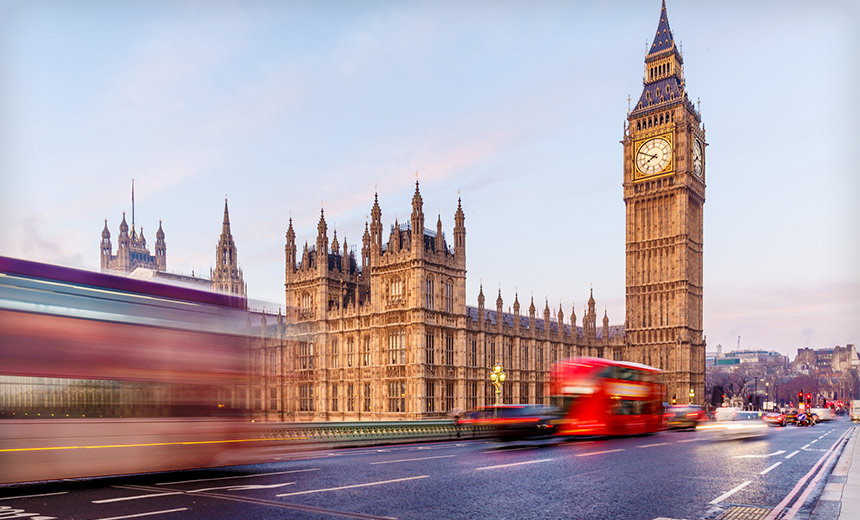Artificial Intelligence & Machine Learning
,
General Data Protection Regulation (GDPR)
,
Legislation & Litigation
Britain’s Global AI Summit to Focus on Governance, Risk, International Standards

The U.K. plans to hold its first-ever global summit on securing the use of artificial intelligence. Goals of the event include identifying AI risks, building effective frameworks for mitigating those risks and using AI safely, and setting international standards to manage AI risks and enforce norms.
See Also: Live Webinar | Unmasking Pegasus: Understand the Threat & Strengthen Your Digital Defense
The AI Safety Summit is due to be held Nov. 1 to 2 in Milton Keynes, England. The event will gather AI researchers, developers and heads of state to try and address challenges and identify opportunities presented by machine learning and deep learning technologies.
While AI could lead to enormous economic growth – up to $7 trillion globally over the next 10 years, according to some estimates – “without appropriate guardrails, this technology also poses significant risks in ways that do not respect national boundaries,” the government said.
Accordingly, “the summit will focus on risks created or significantly exacerbated by the most powerful AI systems, particularly those associated with the potentially dangerous capabilities of these systems,” it said.
Concerns are growing about AI’s potential to “undermine biosecurity,” the government said. Other risks include the technology’s ability to bulk-process personal data, which lawmakers say could violate existing privacy regulations. Cybersecurity risks include misuse of the technology by unfriendly nations or criminals, to craft more sophisticated hack attacks. On a societal level, a lack of transparency over how AI models get trained continues to stoke concerns of algorithmic bias, leading to unfair or dangerous outcomes.
AI also offers enormous opportunity, including the potential to develop drugs much quickly, build safer transportation systems and more.
The summit represents the government’s move to not just urgently address ways to mitigate AI risks, but also to ensure the U.K. – and British academics and businesses – have a role in promoting global cooperation for developing AI development, including with technology, research and development, as well as crafting global standards.
By some measures, Prime Minister Rishi Sunak’s government is already late to the game. The announcement of the November summit comes just days after lawmakers on the U.K Parliament’s Science, Innovation and Technology Committee urged Sunak to speed up and expand efforts to finalize the country’s domestic AI policy (see: UK Lawmakers Call for Swift Adoption of AI Policy).
Some lawmakers are concerned that Britain’s interim AI strategy, published in March, could impede the country’s AI development because the government does not plan to introduce any new legislation in the near term. As a result, other jurisdictions, “principally the European Union and the United States,” may well be the ones “to set international standards,” they warned.
The EU is close to finalizing AI regulations designed to mitigate risks and ban applications considered to be too risky for society. In the U.S., Congress appears unlikely to introduce legislation comparable to Europe’s AI Act anytime soon, but the Biden administration in April did launch a potential precursor to rolling out such regulation.
Unless Britain introduces its own legislation, British lawmakers warn that AI standards, governance and enforcement may well go the way of the EU General Data Protection Regulation. Namely, if the EU articulates its position first, the U.K. may find it “difficult to deviate” if it favors a different approach.
